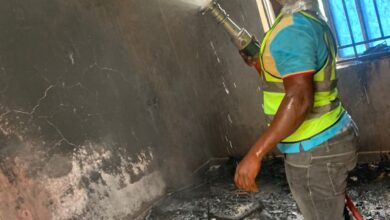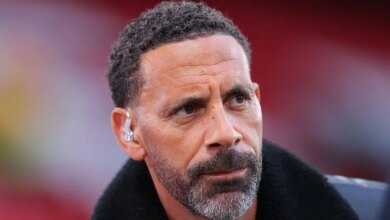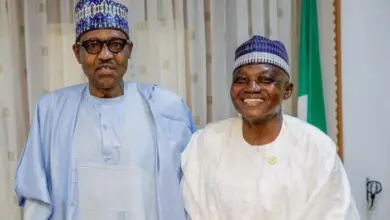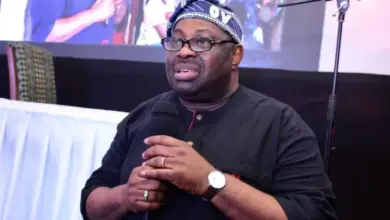Comprehensive Sexuality Education: The debate that could save teenage girls
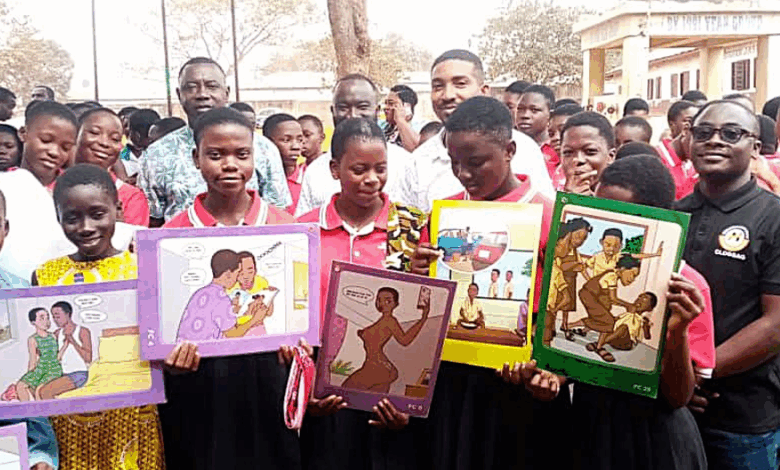
Across Ghana, many girls do not get lessons about their bodies. They hear only that they must abstain until marriage.
They do not hear about how to protect themselves or hear what to do if things go wrong. These silences cost futures.
Christabel Akuffo, 14, a junior high school student in Asokwa in the Ashanti Region, says she has questions.
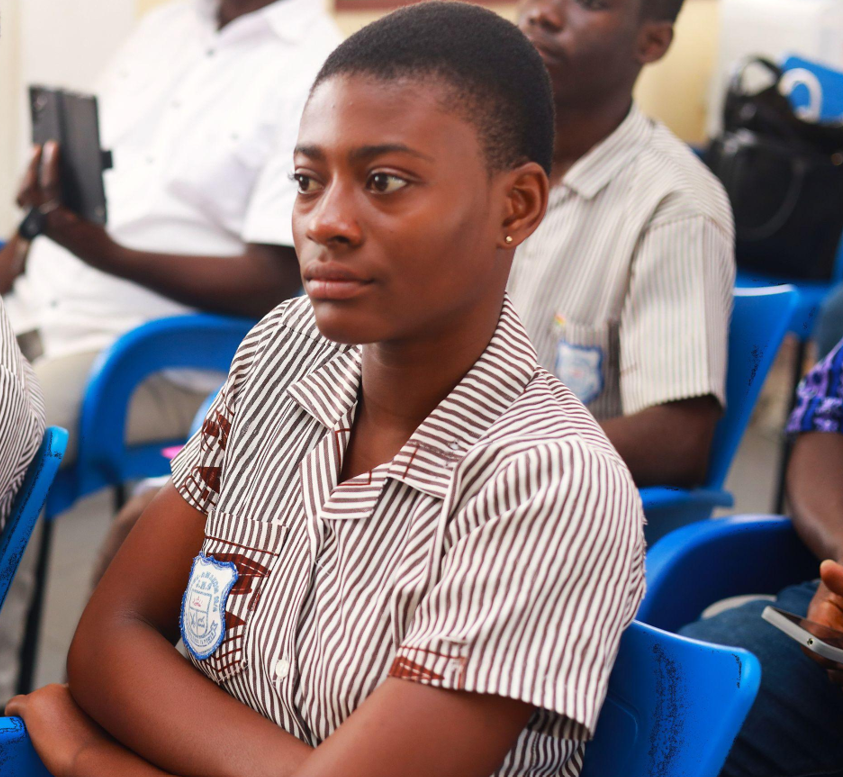
14-year-old Christabel Akuffo, seated at a girl-child program
She has heard about menstruation in school. She has heard in girl-child programs how to keep clean.
But she does not hear from home about her body beyond this.
“My mother taught me that I should not engage myself in any sexual activity because I have menstruated, and now, if I get myself engaged in any sexual activity, I may get pregnant and I cannot further my education,” Christabel says.
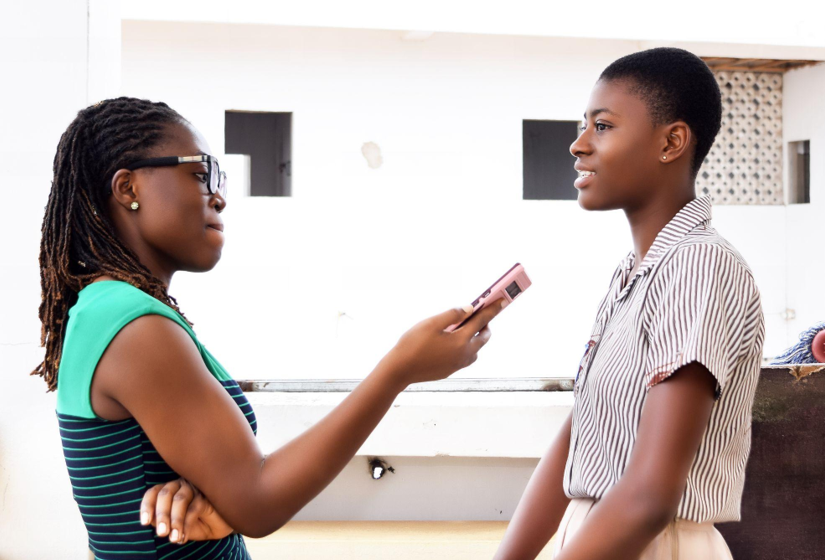
Christable Akuffo, in an interview with a journalist
She feels afraid to ask more, because people call girls “bad” when they ask about sex or bodies.
Mercy Ohemaa Kessewa, who is 13 years, says much of what she knows came from teachers, and from her mother when she first had menstruation.
Teachers warn girls not to get close to men who might spoil their future.

Thirteen year-old Mercy Ohemaa Kessewa in a cultural display at her school
Mercy also says she asked why one girl got pregnant at 14. An adult told her, “What do you know, it is not your business …” Mercy felt sad. She says she would rather know the truth than live in fear.
Context and Data
Teenage pregnancy is high in Ghana. According to the 2022 Ghana Demographic and Health Survey, 15.2% of girls aged 15-19 have ever been pregnant.
Ashanti Region is among the worst-affected, with about 24% of teenage girls in that age group having experienced pregnancy according to a 2022 survey by the Ghana Statistical Service..
An online news portal, The Ghana Report, reported that between 2016 and 2020, Ghana recorded over 542,000 teenage pregnancies.
These numbers show that abstinence alone is not stopping the problem.
Comprehensive Sexuality Education, some people say, could change the course.
It includes talking about sexuality, sexual orientation, body changes, rights, safety, how to prevent pregnancy, and where to get help.
But many parents, teachers, and community leaders fear CSE will “spoil” children, teach them things seen as taboo, or encourage early sex.
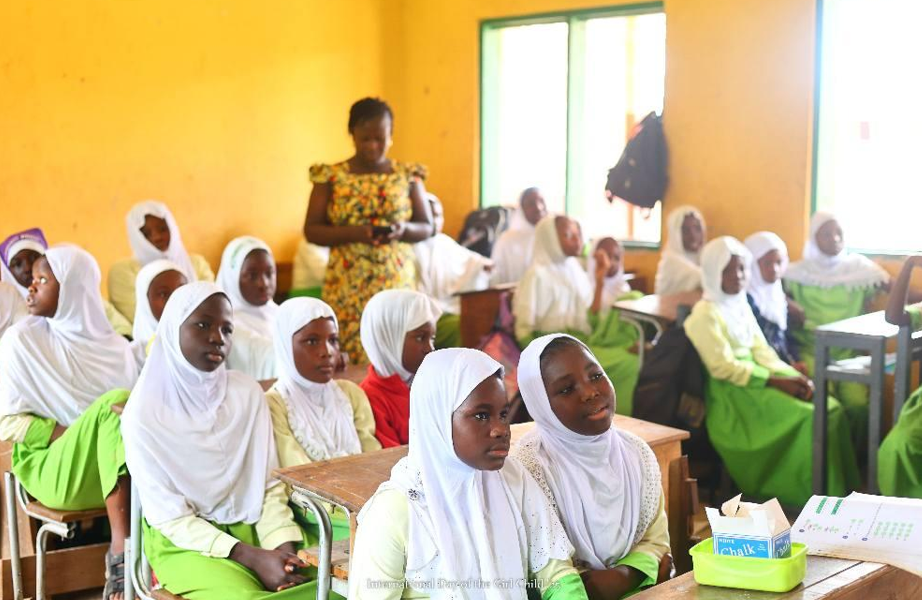
The debate, why some reject CSE
A number of people fear it promotes an “LGBTQ agenda,” is age-inappropriate, and undermines family and religious values.
Some parents believe that any talk of sex will corrupt young minds.
They believe children are too young to understand and fear that teaching about relationships, protection, and sexuality will push children into behaviours they are not ready for.
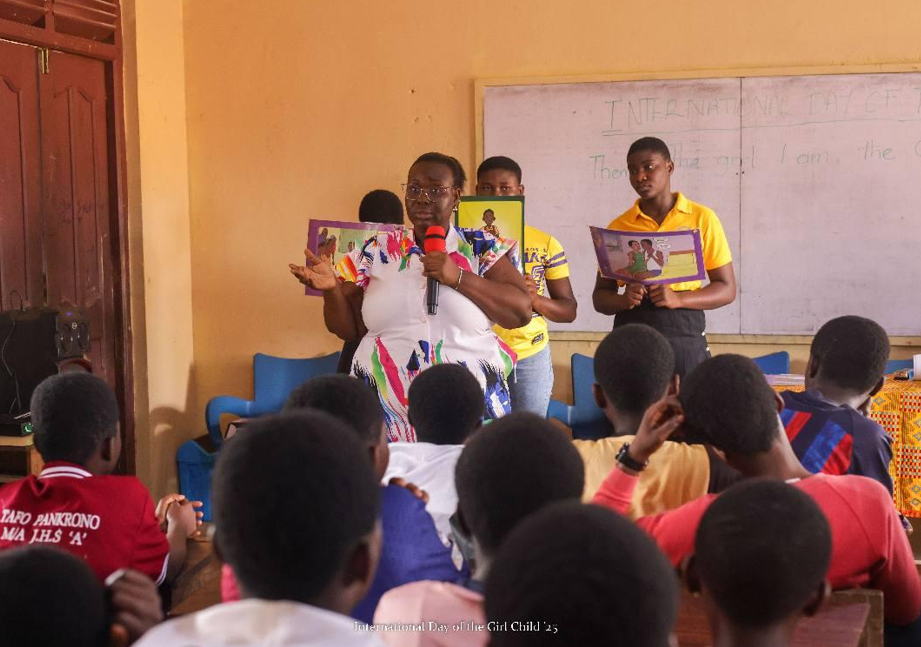
Serwaa Osei Kankam, a parent, is strongly against the introduction of comprehensive sexual education for her 14-year-old twins in Junior High School 2.
She says the topics are not suitable for her children.
“Children will gradually learn about their bodies as they grow. There is no need to introduce them to such topics. Some of the topics are above them and are too sexual. What then will they do with such information?” she asked.
Serwaa says such lessons could lead children into immoral acts.
“Look around, children who were introduced to sexual conversations are the ones getting pregnant. The naive ones are rather abstaining. This conversation will only make them more curious to try out pornographic things,” she added.
On the other hand, Beatrice Ofosuah Opoku from the Guidance and Counselling Unit of the Ghana Education Service says:
“Some people … say that sexuality education … has a bit of LGBT content and learning about your body and relationship is … controversial.”
She sees the concern, the gap and notes that many children learn from friends and from the media, not from parents or proper education.

Traditional leader, Nana Akua Afriyie, who is a former worker at the National Commission for Civic Education, says many in her community see sexuality education as foreign or bad.
She says culture, religion, and fear of judgment often shut down conversation.
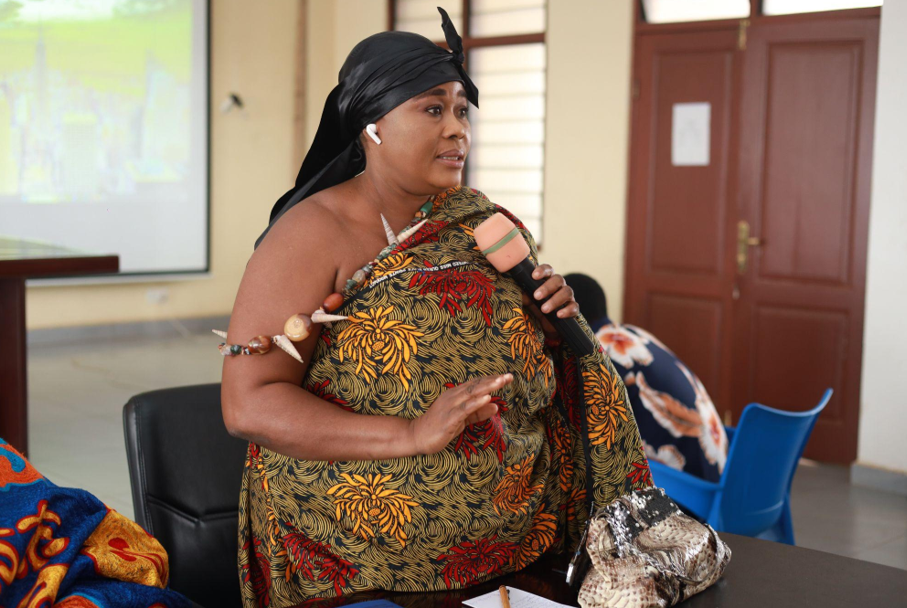
Voices for CSE
Others argue that teaching correct information early saves girls and gives them power to make choices.
It reduces risk of unplanned pregnancy, of school dropouts, and of harm.
Stephen Afotey, headmaster at Asokwa MA JHS, says parents must be part:
“You are your child’s first teacher. There are things the parents must tell the child. … Children as little as eight years old have started doing their own things relating to the opposite sex, so you have to introduce them to such comprehensive sexual education … prevent incidences from happening, rather than watching it happen.”

Mercy Adomaa Beseah, Regional Manager of the National Population Council says parents avoid sex talks out of fear, but silence is harmful:
“Parents these days don’t have time for their children. We don’t pay attention to them. We don’t even discuss sex with them … we need to have age-appropriate conversation with them … so we can avoid some of these … teenage pregnancy.”
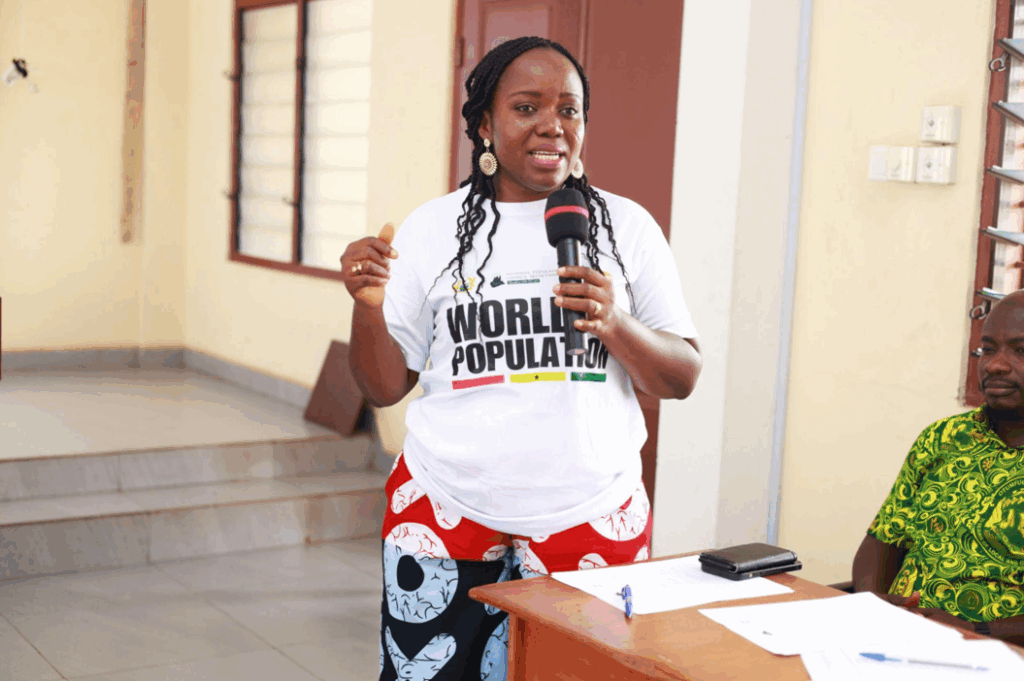
How silence hurts girls
Christabel says a friend in her neighbourhood dropped out of school after pregnancy at about age 15 or 16.
Christable worries it may happen to others. She wants to know more, to protect herself.
Mercy says she asked what makes girls pregnant early. She wanted the truth but got shamed. She says: “That day I was very sad.”
Teachers see cases where girls skip school when they are pregnant.
Stephen Afotey says his school allows girls who give birth to return, write exams, and finish their basic education.
But often, the path back is hard. Not all schools or parents support this.
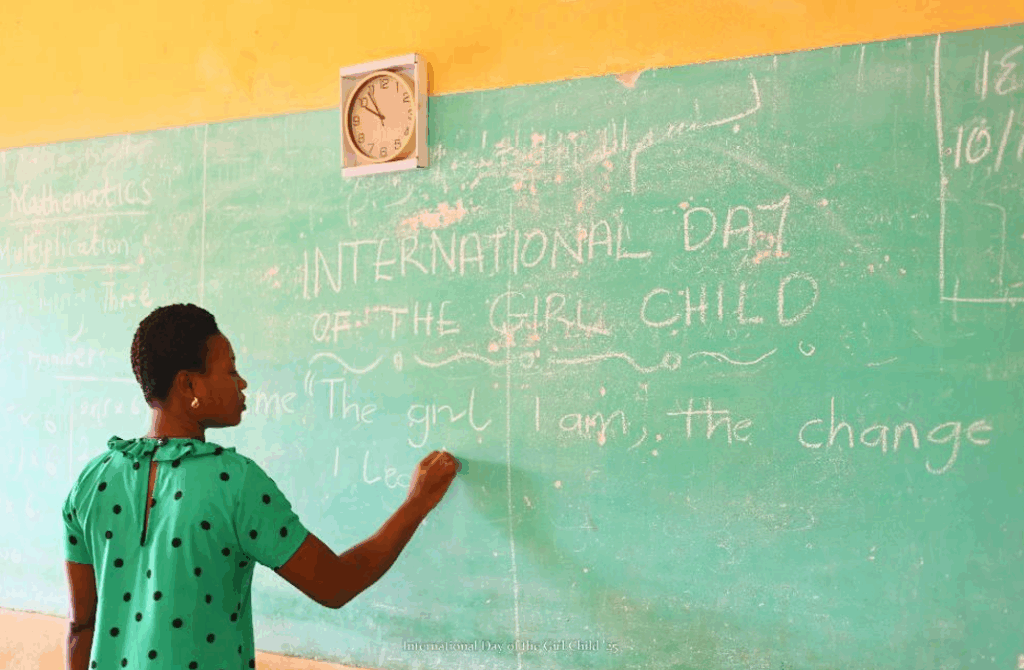
What could work
In a vox pop on how to reduce teenage pregnancy and protect girls, people shared several ideas.
Some said comprehensive sexual education should be fully included in school lessons.
They said it should cover body changes, sexual orientation, safe practices, and where to get help.
Others said teachers should be trained to answer questions correctly but should not delve into topics of sexuality or sexual orientation..
Many also called for parents, chiefs, queen mothers, and churches to be involved to help break cultural taboos around sex education.
Some said adolescent-friendly health services should be made available so girls can get help in privacy.
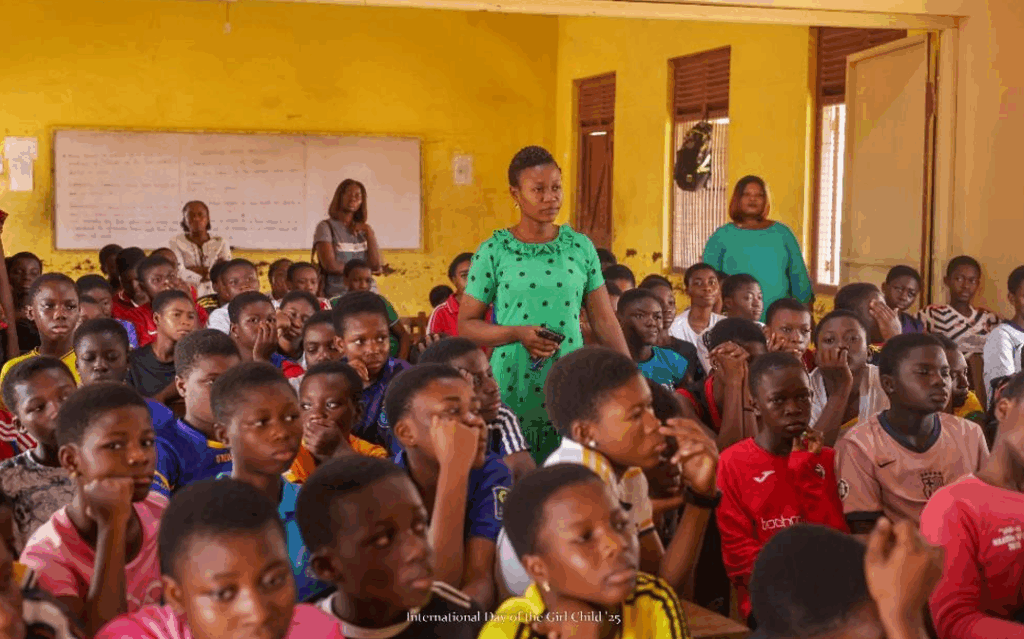
Some districts across Ghana already show progress.
According to GBC Ghana, In Akatsi North (Volta Region), the adolescent pregnancy rate dropped from 12.49% in 2021 to 7.79% in 2024.
This issue links to SDG 3 (Good Health and Well-Being), SDG 4 (Quality Education), and SDG 5 (Gender Equality). If girls stay healthy, remain in school, and are treated equally, society gains more.
SDG 3.7 aims for universal access to sexual and reproductive health.
Without CSE, many girls miss out. SDG 4.7 which is for the youth to get knowledge to live responsibly.
Without that knowledge, many girls are left behind.
SDG 5 also demands gender equality, girls deserve truth and respect, not fear and silence.
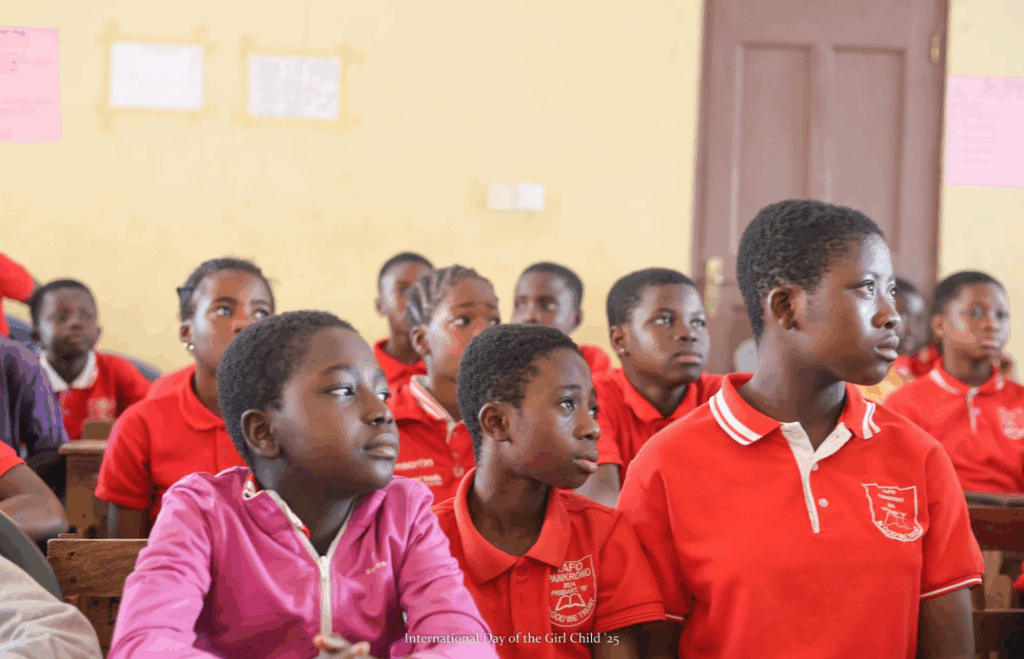
Christabel and Mercy ask questions. They want the truth and deserve answers.
If Ghana wants fewer teenage mothers, fewer school dropouts, fewer girls silenced by fear, then we must end the silence.
Comprehensive Sexuality Education is not a danger, but a tool which can save girls.
Adults, parents, teachers, chiefs, queen mothers must speak up, teach and listen.
Only then will silence no longer cost lives.
DISCLAIMER: The Views, Comments, Opinions, Contributions and Statements made by Readers and Contributors on this platform do not necessarily represent the views or policy of Multimedia Group Limited.
DISCLAIMER: The Views, Comments, Opinions, Contributions and Statements made by Readers and Contributors on this platform do not necessarily represent the views or policy of Multimedia Group Limited.
Source link


